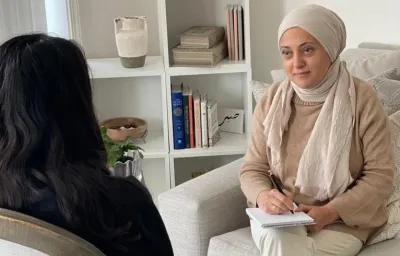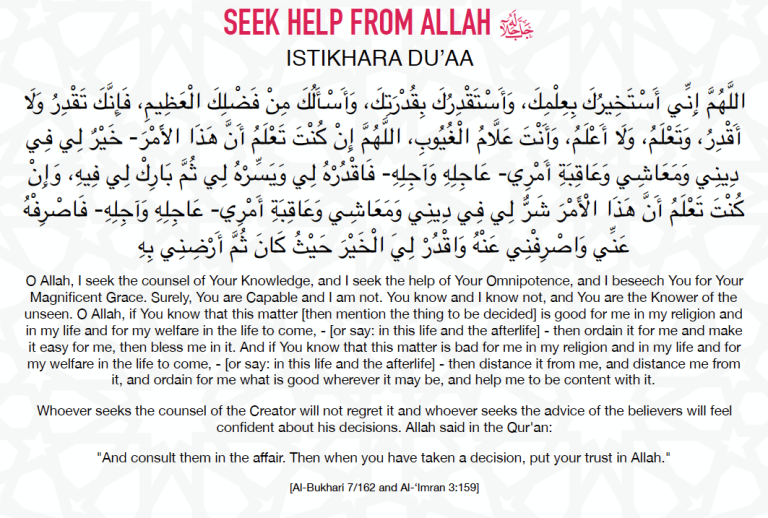Divorce Procedure – Ta’laq & Khula
- We strongly encourage individuals and/or couples to meet with a Maristan counselor at MCC’s counseling center or a Wasilah Connections therapist before you proceed with your divorce. Maristan and Wasilah can help guide, counsel, and mediate with you and your loved ones on marriage and divorce decisions, parent-child relationships, and general family conflicts. We also have several videos in this playlist to help you better understand the Talaq (divorce) process. You can also schedule a discovery call with Divorced Muslimah Coach Rayesa Gheewala.
- If the individual or couple wishes to proceed with an Islamic divorce (only after their court divorce has been finalized), please complete the form below to schedule an appointment. Both individuals must be present on the day of their appointment with Qari Amar Bellaha and must bring:
- A copy of the legal divorce decree (link for starting the process in Alameda County, link for beginning the process in Contra Costa County, and link for starting the process at the San Joaquin Superior Court; also,o how to petition for a default/uncontested process)
- A photo I.D.
- A completed MCC divorce form (Please do not complete the grey block areas; we will complete those on the day of your Talaq appointment with Qari Amar)
Please note:
- A legal court divorce is mandatory before MCC can perform religious divorce services (Talaq). Like with religious marriages (Nikkahs), the State of California requires a religious official (a priest, a Rabbi, or an Imam) to verify that the couple has legally divorced before the official performs a religious divorce.
- The MCC does not charge for divorce services (an optional donation is accepted here). An individual or couple must compensate Qari Amar Bellaha for his time, as divorce (talaq) and Islamic marriage (nikah) are not part of his day-to-day responsibilities at MCC.
- MCC cannot assist with a Khula dissolution. If a husband is unable or unwilling to participate in a Talaq, the wife may request Khula dissolution via the Islamic Sharia Council of California. In Islamic law, Faskh (or Khula) refers to the dissolution of a marriage by a court or a religious authority when the wife seeks divorce and the husband refuses to grant a Talaq (divorce). It’s a court-ordered divorce when a husband is unwilling to provide a Talaq, even though the marriage has broken down.
- For a divorce recognized explicitly by the Republic of Iran, please see here.
- After divorce, we encourage our sisters and brothers to learn how to co-parent effectively, develop coping strategies, and seek peer support. Here are some resources: FYI’s Divorce Support Toolkit, Wasilah Connections, The Divorced Muslimah Network, Bay Area Muslim Therapists, and the Institute for Muslim Mental Health. Therapy For Muslims and Mental Health For Muslims. Here are Seven Steps to Coping With Divorce and Essential First Steps When Filing for Divorce.
- In Fiqh (Islamic Rulings), when a man or a woman requests a divorce with reason, it is known as ‘Ta’laq; when a woman requests a divorce without due cause, it is known as ‘Khula.’
- Individuals cannot request or proceed with a divorce on behalf of other parties. All clients must represent themselves throughout the divorce procedure, although they may be accompanied.
- Divorces for couples who have married abroad still require a divorce from the court before proceeding with the Islamic Divorce Decree with MCC.
- Several community members in the San Francisco Bay Area are family law attorneys (immigration attorneys here) who can assist you. MCC does not endorse these attorneys. This is a courtesy community listing only. Please make your own informed decisions based on your research and understanding of your specific needs:
- For discounted/pro bono legal aid services, please check with Bay Area Legal Aid or Justia or use the Self-Help & Family Law Facilitator’s office in Alameda County.
- For a family divorce mediator, please contact Amir Siddiqui, a Pleasanton-based clinical mental health counselor who works with couples, individuals, and families. His phone number is (313) 296-8734.
- For professional supervised visitation and an exchange provider list, see this document from the Hayward Family Court.
- If there is domestic abuse, please call:
- 911 if in immediate danger
- For Bay Area: North American Islamic Shelter For The Abused (NISA) at (888) 275-6472
- For Sacramento Area: ICNA Relief’s Sakina Home at (916) 821-5166
- National Domestic Violence Hotline at (800) 799-7233
- For discounted/pro bono legal aid services, please check with Bay Area Legal Aid or Justia.
- For immigration in the Sacramento area, please see here.
- For bankruptcy, please get in touch with Erum Choudhry in Livermore. MCC does not endorse these attorneys. This is a courtesy community listing only. Please make informed decisions based on your research and understanding of your specific needs.
- For a personal injury, please get in touch with Shafeeq Sadiq. MCC does not endorse these attorneys. This is a courtesy community listing only. Please make your own informed decisions based on your research and understanding of your specific needs:
- Please see here for Islamic estate planning, wills or trusts, or the Islamic Marriage Contracts: A Resource Guide for Legal Professionals, Advocates, Imams & Communities)
Questions? Please get in touch with us.
Divorce Service Request
Frequently Asked Questions
- Can Muslims get a divorce in America?
Yes, Muslims can legally divorce in America, following both Islamic guidelines and state legal requirements. - How do I get an Islamic divorce?
An Islamic divorce is obtained by following Islamic legal procedures, often including the pronouncement of “talaq” and a waiting period, along with consulting a religious advisor. - Is an Islamic marriage legal in the US?
Islamic marriages are recognized in the US if they meet state requirements, such as obtaining a marriage license and adhering to age consent laws. - What is the most approved form of divorce in Islam?
“Talaq” is the most approved form of divorce in Islam, initiated by the husband and followed by a waiting period for reconciliation. - Can a wife say no to her husband in Islam?
Yes, in Islam, a wife has the right to say no to her husband, particularly in harmful situations or those against Islamic principles. - Can a husband refuse Khula?
A husband can refuse Khula, but in such cases, the wife may seek a judicial divorce from an Islamic court or legal authority. - How long after divorce can you remarry in Islam?
A woman can remarry after the ‘iddah period, typically three menstrual cycles or three lunar months post-divorce. - Do you need witnesses to get a divorce in Islam?
Witnesses are traditionally required in the Islamic divorce process to validate the divorce and aid in reconciliation.




